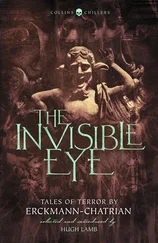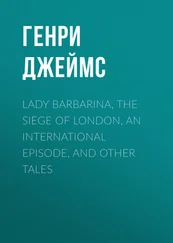Rachel said, “How could our doctor make such a long journey just as he is?”
“What do you mean by ‘just as he is’?”
“I mean, all alone,” said Rachel.
“And what does ‘all alone’ mean?”
“It means without a wife,” said Rachel.
Leah took Jacob’s hand and clasped it as a conciliatory gesture.
Rachel added, “What a pity it is we didn’t settle among ourselves that whoever first took Rechnitz’s hand won the privilege of going to America with him.”
Leah withdrew her hand, remarking, “You’re a wicked girl, Rachel!”
Asnat said, “But, Leah, doesn’t taking his hand make you a wicked girl?”
Then Tamara came up and took hold of Jacob’s hand.
“It will do you no good, Tamara,” said Rachel. “We were talking about whoever first took his hand, which does not apply to you.”
Tamara gave the hand a little squeeze and sniffed at the carnation on her blouse.
“I don’t know why,” said Mira, “but I feel as if I want to run. To run from one end of the world to the other.”
“To run? What put that into your head?”
Mira said, “If I were to run, no horse and no rider would ever catch me.” Even as she spoke, she started off on her light feet. Leah called after her, “Mira, Mira, don’t go too far!” But Mira did not hear her; she was already some distance away and still running.
Said Raya to Tamara, “And you, my little Tamara, stand about like a hobbled bird. Don’t you want to try your legs?”
Tamara raised her eyes and gazed up at Jacob to see if her running would please him. Even as she looked, her feet lifted themselves of their own accord and she was off.
Asnat played with the tassels of her belt, swinging them back and forth as she said, “If Dr. Rechnitz doesn’t take one of these mighty runners for a wife, I don’t know whom he will take.” As she spoke, the tassels slipped out of her hands and her legs began to quiver.
“Do you want to run, too?” said Rachel, taunting her.
“If you run, I will!” she answered.
“No,” said Rachel, “you run. What’s this I am holding, a circle of thorns? Dr. Rechnitz, I forgot I had your plants in my hand and I’ve brought them out with me. Now listen to me, girls, listen. Whoever beats the others in the race will be crowned with this garland.” She raised overhead the seaweeds she had plaited, repeating, “Whoever beats the rest takes this as her crown. What do you want to say, Leah?”
“That’s not how the Greeks did it,” said Leah. “What they did was this. The young men ran and whoever won the race received the crown from the most beautiful girl present. Isn’t that so, Dr. Rechnitz?” And as she spoke she, too, felt her knees quiver. To Rachel she said, “Will you run with me?”
“Run, Leah, run!” said Rachel. “Perhaps you’ll win the garland.”
At this point the other girls returned. “Girls,” said Leah, “if you’d been here a moment ago, you’d have heard a splendid thing.”
“And what is this splendid thing we’ve missed?” asked Asnat.
“Do you see this garland?” said Leah. “We’ve all agreed that the fastest runner will win and wear this wreath, made of Dr. Rechnitz’s weeds. Do you agree, Dr. Rechnitz?”
Rechnitz nodded, saying, “Yes.” But his face grew pale and his heart began to quake.
Leah insisted, “The Greeks had the men run, not the girls.”
Asnat answered, “But since all those young men are dead and we are alive, let’s do their running ourselves. Do you agree, Dr. Rechnitz? Yes or no? Why don’t you speak?”
Rechnitz answered, “I agree,” and his heart quaked all the more.
“Very well,” said Asnat. “Stand in a line, girls. Now, where do we start from and where do we run to?”
She looked up in the direction of the Hotel Semiramis and said, “Let’s start from the Semiramis.”
“And where do we finish?”
“At the old Moslem cemetery. Dr. Rechnitz, you stand in line with us and call ‘one, two, three.’ At ‘three,’ we’ll start. Raya, don’t step out of line. Tamara, until Rechnitz gives the call you mustn’t lift a foot, do you hear?”
“I hear,” said Tamara.
“Stay in your place, then, and don’t stretch your neck out like a camel’s.”
All the girls now stood together where the balconies of the Hotel Semiramis overlooked the sea. They faced the old cemetery, which they had taken as their finishing point. Each looked down at her feet as they made room for Rechnitz. And Rechnitz, standing in the middle, looked from side to side at the girls poised for the race, at the garland on Rachel’s arm, and again at the girls, wondering which of them would wear it as her crown. His hands trembled and his heart beat so fast that he could hardly speak.
The sand was damp and firmly packed; the moon lay on the dim beach, and the dim beach was its mirror. Like drawn bows to which the arrows had not yet been fitted stood the six girls, each waiting for the word that would set her off. But the word was still unspoken; it seemed that Rechnitz had forgotten all about their agreement of a moment ago, or perhaps he had not forgotten and that was the cause of his delay. One girl asked, “Why is he taking so long?” And another said, “Come on, Dr. Rechnitz, say the word!”
Then Jacob, in fear and trembling, called, “One!” To left and right of him the girls quivered with excitement, so that the very sands beneath their feet quivered too. As for Rechnitz, he too was trembling, and perhaps more than they. Suddenly Rachel cried, “Wait, Jacob, wait!” She left her place, knelt down in front of Rechnitz, took the wreath from her arm and passed it to him before going back to stand with her comrades. “Now, Doctor,” she said, “you can say, ‘two, three.’ ” Rechnitz heard her but did not heed, or heeded her but did not hear. Then abruptly the words broke from his lips of their own accord and a voice was heard saying, “One, two, three!” and the girls shot off on their run.
XXXII
Jacob held the garland that Rachel Heilperin had plaited from the dried seaweeds she had found on his table. He looked about him, uncertainly. The six girls raced side by side until one went twisting ahead, like a ball of twine that has dropped from the hands of the knitter. Then she was caught up and returned to the cluster of her companions. Again the rank was broken, by one here and one there, until one girl outpaced all the rest for a time, only to be overtaken; and again the group came together and again broke up. His eyes began to burn painfully; still he watched the running girls. He pricked up his ears to hear the sound of their feet, though this was difficult to catch, for now the tide was rising and the noise of the waves kept breaking through.
At the sound of the waves, at the sight of the limitless expanse of sea, Rechnitz closed his eyes. And now he saw his mother kneeling down before him. He was a small boy; she was threading a new tie round his collar, for it was the day Shoshanah was born and he was invited to the Consul’s house. But surely, thought Jacob to himself, she can’t be my mother, and it goes without saying that she isn’t Shoshanah’s mother either, because one is far from here and the other is dead; if I open my eyes I shall see that this is nothing but an optical illusion. The illusion went so far as to present him at once with his own mother and with Shoshanah’s; and since one object could not be two, it followed of necessity that here was neither his own mother nor Shoshanah’s. But if so, who was she? Shoshanah herself, perhaps? Of course not, for Shoshanah was ill in bed.
He opened his eyes and saw that all was but the shadow of an image, what a man compares to what he actually sees. Of course this was neither his mother nor Shoshanah’s mother nor Shoshanah, but Leah and Rachel and Asnat and Raya and Mira and Tamara. Jacob shifted the wreath from one hand to the other and looked across at the girls who were racing side by side, or one close after the other, each trying to outstrip her companion. Rachel was as light-footed as a gazelle; it seemed likely that she would outrun the rest. But Leah, the deliberate one who measured all her movements, now passed Rachel, and Mira overtook Leah, naturally enough, since she was so accustomed to exercise and running. Finally she was left behind Asnat, with Rachel and Raya outstripping them both. Little Tamara vanished into thin air, she was swallowed up in space; but again she appeared, only to be swallowed up again and vanish from sight. Yet apparently she had managed to pass her companions. At first it had made no difference to Jacob who would outrun whom; now he felt some regret as he saw Tamara beating them all. At least there was some comfort in the thought that the old cemetery was far away and that one of her friends would probably get ahead before she could reach it. Indeed, a figure was now to be seen running ahead of Tamara, but since she was a good way off one could not tell quite who she was. Jacob shut his eyes and left it for time to decide. But time waited and did not defer to Jacob.
Читать дальше












